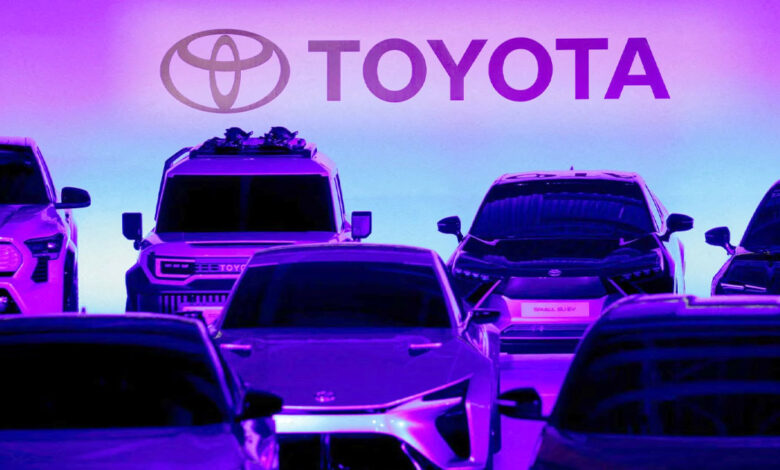Toyota Unveils Ambitious Plans to Lead the Electric Vehicle Revolution

Toyota Unveils New Electric Vehicle Strategy
Toyota, the world’s largest automaker, unveiled a new electric vehicle (EV) strategy on Tuesday, including plans to introduce high-performance, solid-state batteries and other technologies to improve the driving range and cut costs of future EVs.
The Japanese automaker said it aims to launch next-generation lithium-ion batteries from 2026 offering longer ranges and quicker charging. It also trumpeted a “technological breakthrough” that addresses durability problems in solid-state batteries and said it is developing means to mass produce those batteries, targeting commercialisation over 2027-2028.
Solid-state batteries can hold more energy than current liquid electrolyte batteries. Automakers and analysts expect them to speed transition to EVs by addressing a major consumer concern: range.
Still, such batteries are expensive and likely to remain so for years. Toyota will hedge with better-performing lithium iron phosphate batteries, a cheaper alternative to lithium-ion batteries that have spurred EV adoption in China, the world’s largest vehicle market.
At the high end of the market, Toyota said it would produce an EV with a more efficient lithium-ion battery offering a range of 1,000 km (621 miles). By comparison, the long-range version of the lithium-ion-powered Tesla Model Y, the world’s best-selling EV, can drive for about 530 km based on U.S. standards.
An EV powered by a solid-state battery would have a range of 1,200 km and charging time of just 10 minutes, Toyota said. By comparison, the Tesla Supercharger network – the largest of its kind – offers the equivalent of 321 km of charge in 15 minutes.
Toyota also said it was developing a dedicated EV platform to reduce the cost of new models and a heavily automated assembly line that would do away with the conveyor belt system that has defined auto production since Henry Ford over 100 years ago.
In Toyota’s “self-propelling” assembly line, cars under production would drive themselves through the process.
It also said it would use Giga casting to cut production costs, adopting an innovation pioneered by Tesla using massive, aluminium casting machines to reduce vehicle complexity.
Toyota’s new EV strategy is a significant shift for the automaker, which has long been seen as a laggard in the EV market. However, the company is under pressure to catch up with Tesla and other rivals, as demand for EVs continues to grow.
Toyota’s new strategy is likely to cost billions of dollars to implement, but the company is betting that it is necessary to remain competitive in the global auto market.





